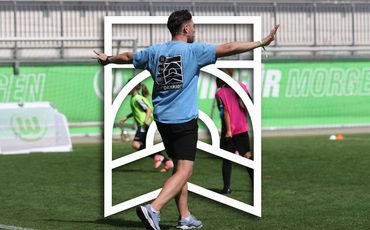Top Tips for Inclusive Coaches and Clubs
Creating an inclusive environment in sport isn’t just a nice-to-have—it’s essential. Inclusive coaching ensures that every athlete, regardless of background, ability, or identity, feels valued, supported, and empowered to thrive. Whether you're new to coaching or looking to improve your approach, here are six practical tips to help you become a more inclusive coach and foster a welcoming club culture.
1. Focus on the Positives
Start by focusing on what your athletes can do, not what they can’t. Every child brings unique strengths to the team. By highlighting progress and effort, you help build confidence and motivation. A positive mindset from the coach sets the tone for the entire group.
2. Become a Relational Expert
Strong relationships are at the heart of inclusive coaching. Take time to learn about your athletes, listen to their needs, and communicate openly. In group settings, some children may need more attention than others—this is okay. Stay connected and responsive to each individual.
3. Reflect on Your Own Beliefs and Behaviours
Inclusion starts with self-awareness. Reflect on your language, coaching style, and the symbols or messages present in your environment. Are you unintentionally reinforcing stereotypes? Phrases like “don’t throw like a girl” can be harmful. Inclusive coaching means being mindful of how your actions and words impact others.
4. Become More Informed
Understanding the broader social and cultural context of your athletes is key. Learn about the barriers certain groups may face in sport—whether related to gender, religion, disability, or socio-economic background. Speak to experts, governing bodies, or community leaders to deepen your understanding and adapt your coaching accordingly.
5. Redefine Inclusion
Inclusion isn’t just about access or equal opportunity—it’s about equity. It means being flexible, responsive, and relational. True inclusion involves creating structures and support systems that reflect your values and ensure every athlete feels seen and supported.
6. Challenge and Educate Your Athletes
Inclusion is a team effort. Encourage your athletes to be inclusive too. Challenge inappropriate language or behaviours, rethink harmful traditions, and ensure social events are welcoming to everyone. For example, use inclusive language like “bring a partner” instead of assuming gender or relationship norms.
Conclusion
Inclusive coaching is about more than ticking boxes—it’s about creating a culture where everyone feels they belong. By focusing on the positives, building strong relationships, reflecting on your own practices, staying informed, redefining inclusion, and educating your athletes, you can make a real difference.
Let’s build teams where every child feels welcome, respected, and inspired to be their best.
Watch the full video below
Comments
Related Pages


